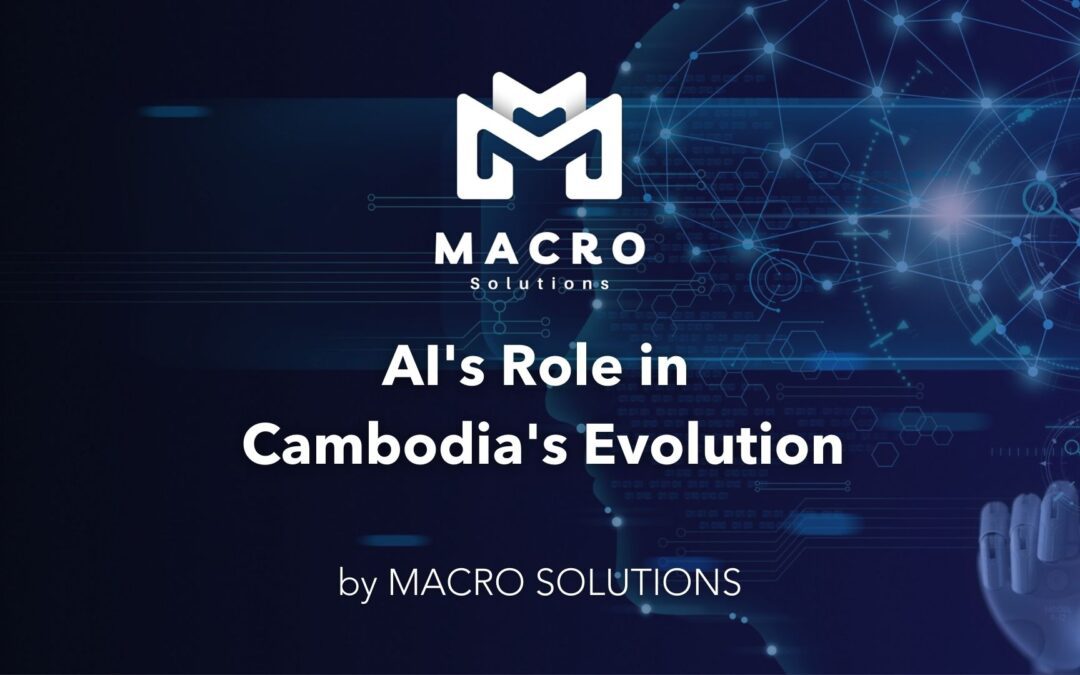Artificial Intelligence (AI) is a rapidly growing field in Cambodia. According to a report by the Ministry of Industry, Science, Technology and Innovation, AI is being explored in various fields in Cambodia such as data analysis, health care and agriculture. The report also highlights the challenges and opportunities that come with the adoption of AI, including policy and governance, education and research, and ethics and social impacts.
The Impact of AI on Cambodia
The impact on Cambodian jobs may vary. While some routine tasks can be automated, AI can create new opportunities in development, maintenance and inspection. The exact percentage of job losses is uncertain. The impact of AI on Cambodian jobs is a complex issue with both opportunities and challenges. By proactively addressing challenges and maximizing the potential for new jobs and skills development, Cambodia can harness the power of AI to drive a more inclusive and prosperous future for its workforce. AI can increase efficiency in farming through crop monitoring, precision agriculture, and disease detection. It can empower farmers with data-driven insights to take better decisions. AI has the potential to revolutionize agriculture in Cambodia by improving crop yields, reducing waste, and increasing supply-chain efficiency. Digital technology in agriculture includes smart farming and precision farming technologies like drones, AI, soil sensors and robotics, as well as farming apps, e-commerce and blockchain software.
Cambodia’s agricultural sector faces many challenges such as unpredictable weather, improper irrigation and poor market access. However, public and private organizations are working to bring agriculture in Cambodia into the digital age.
Future Laws for AI in Cambodia
Cambodia, like many countries, stands on the cusp of the AI revolution. This powerful technology promises to reshape industries, improve lives, and fundamentally change the way we interact with the world. Yet, along with the excitement, questions of ethics, regulation and responsible development also loom large.
The rapid development of AI presents a unique challenge. Existing laws may struggle to keep pace, potentially exposing shortcomings in areas such as data privacy, ethical standards and accountability. Recognizing this, Cambodia may soon see new laws to regulate the use of AI, ensuring that its development and deployment is in line with the country’s values and priorities.
AI in Marketing: Personalization, Engagement & Targeted Advertising
One of the most immediate applications of AI lies in marketing. AI can create personalized content for individual consumers, analyze their behavior with remarkable accuracy and optimize advertising strategies for maximum impact. AI-powered chatbots can increase customer engagement by providing 24/7 support and answering questions in real-time. Targeted advertising, while raising privacy concerns, may also provide benefits by providing relevant products and services to consumers who are actively seeking them.
AI for Humanity: A Societal Responsibility
Expectations for the impact of AI on humanity extend far beyond the realm of commerce. Ideally, this technology could be used to tackle some of our societal challenges. Like health care, AI-powered tools can aid in diagnosis, predict disease outbreaks, and even personalize treatment plans. Education can benefit from AI tutors that adapt to individual learning styles, while access to information can be democratized and we can build Leadership Capacity in Phnom Penh through AI-powered translation tools and knowledge platforms. However, realizing this potential depends on the development of ethical AI based on the principles of fairness, transparency and inclusivity.
The Future of AI: AI as a Partner, Not a Master
As we step into a future increasingly shaped by AI, it is important to acknowledge both the excitement and caution that comes with this new frontier. The potential for positive change is undeniable, providing solutions to complex problems and enriching our lives in countless ways. Nevertheless, this progress must be guided by a strong commitment to responsible development and ethical deployment. Through thoughtful regulation, education, and open dialogue, we can ensure that AI serves as a partner in our collective evolution, not a force that determines our future.
Conclusion
AI with beautiful imagination and thoughtful insights. From farming fields to hospitals and from classrooms to online stores, AI is making its way into everyday life and promising a brighter future for all. While challenges such as job displacement and ethical considerations remain, the proactive approach of the government and businesses inspires optimism.
Adoption of AI is not about replacing humans, but about empowering them. It’s about using technology to amplify our strengths, tackle tough problems, and unlock a new era of prosperity. So come join us for modern Digital Solutions in Phnom Penh and work together to adopt AI responsibly and ethically, ensuring that this journey towards a smarter, more efficient and ultimately more humane Cambodia benefits everyone.
